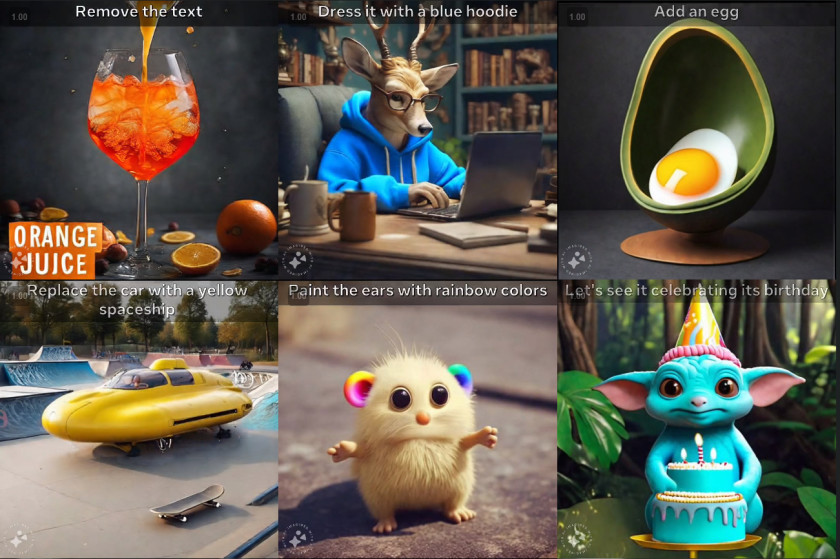Meta Teases Innovative AI Tools for Effortless Video and Image Creation Through Text Prompts
Meta Teases Innovative AI Tools for Effortless Video and Image Creation Through Text Prompts
Meta has unveiled two groundbreaking AI projects with the potential to revolutionize content creation on Facebook and Instagram. These projects, based on Meta’s “Emu” AI research, explore innovative applications of generative AI for visual projects.
The first project, “Emu Video,” empowers users to craft short video clips from text prompts. This unified architecture can respond to various inputs, including text-only, image-only, or a combination of both. The process involves generating images based on a text prompt and then creating videos conditioned on both the text and the generated image. This approach, known as a “factorized” or split method, enhances the efficiency of training video generation models.

For instance, users can generate video clips by combining a product photo with a text prompt, opening up new creative possibilities for brands. Emu Video can produce impressive 512×512, four-second videos at 16 frames per second, surpassing Meta’s previous text-to-video creation process. Human evaluations indicate a strong preference for Emu Video over prior work, with a 96% preference based on quality and an 85% preference for faithfulness to the text prompt.
The second project, “Emu Edit,” allows users to make specific custom edits within visuals. What sets this project apart is its reliance on conversational prompts. Instead of manually highlighting the part of the image to edit, users can simply request edits to specific elements through conversation, and the system comprehends the intended visual modifications.

The potential applications of these projects are vast, offering creators and brands the ability to leverage generative AI in unprecedented ways. Meta is also addressing the issue of AI-generated content identification through a new “AI-generated” tag, prominently displayed in the bottom left of each clip. This tag aims to signify content created by AI, including embedded digital watermarks on synthetic content, making it more challenging to edit out, especially in the case of video clips.
While Meta has not specified the release date for these tools within its apps, their imminent arrival promises new creative opportunities across various domains. These projects mark a significant step forward for Meta’s generative AI tools and have the potential to reshape the landscape of content creation on social media platforms.

